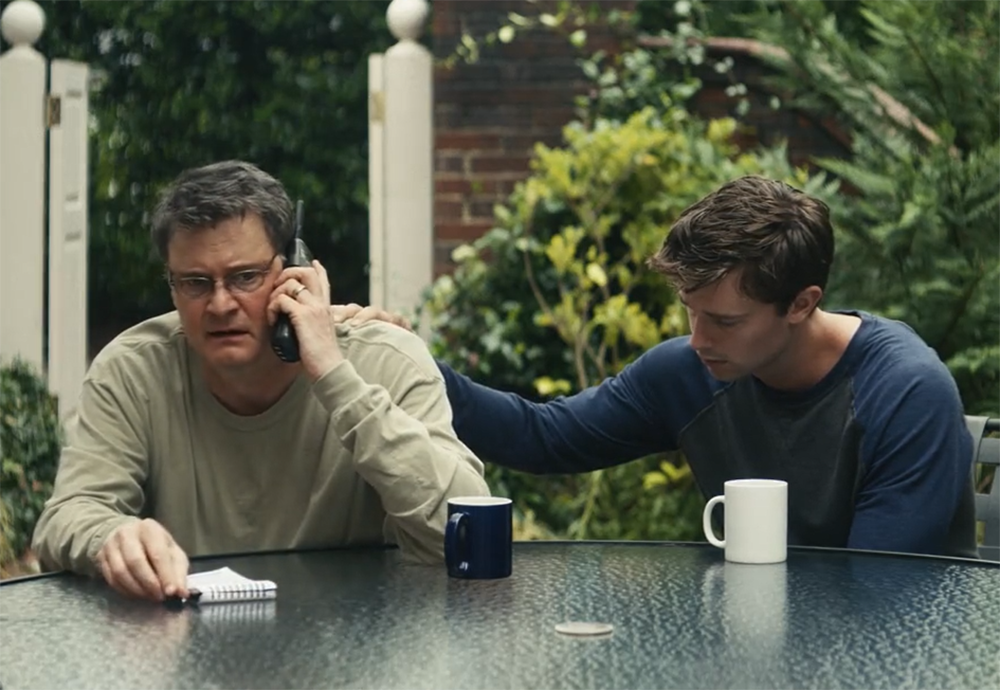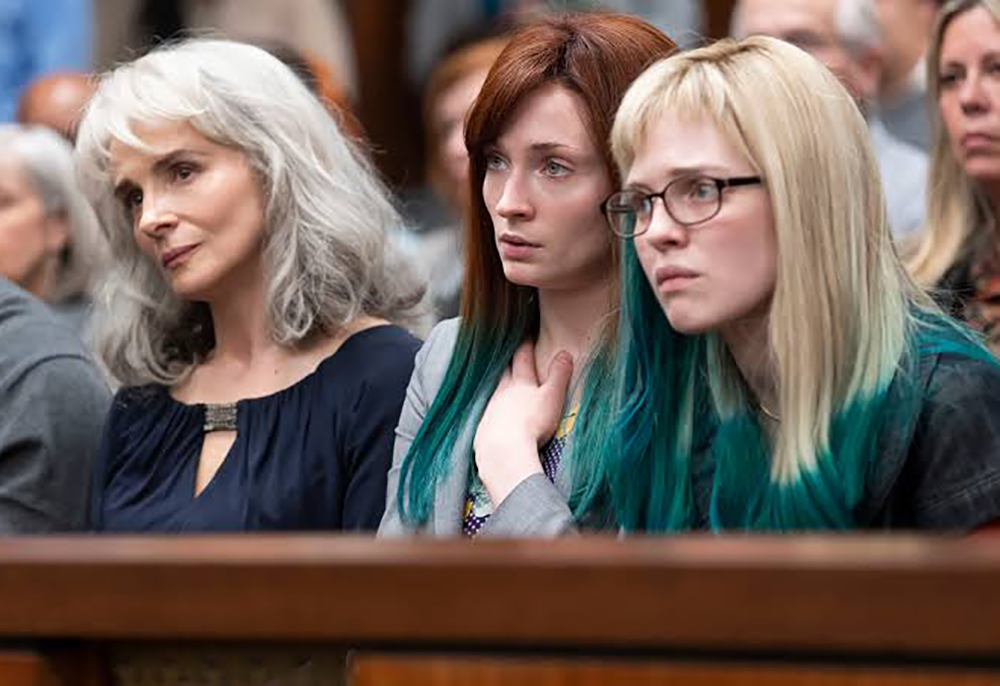As the rest of America recuperated from the horrors of 9/11, yet another tragic and grisly sight greeted best selling novelist, political essayist, and potential political candidate Michael Peterson at his Durham, SC home on a chilly night in December of 2001. His second wife, Kathleen lay battered, bloodied, and lifeless at the bottom of a staircase. As the sole accused, Peterson found himself at the mercy of evidence that largely incriminated him in the case. And when his own web of lies regarding his sexuality and infidelity eventually failed to rid him of any guilt whatsoever, his already suspicious in-laws and the rest of his kin turned their backs on him for good. “The Staircase,” a semi fictionalized, slow-burn take on this haunting true crime exhumes the bordering on farcical nature of the lengthy trial that followed.
The Peterson case had already been adapted once before. First, in the form of a 13-episode docuseries adapted by a French documentary crew airing alongside the trial in 2003 until 2018 (it’s currently available to stream on Netflix too). However, what sets the HBO Max mini-series apart is that it isn’t merely a regurgitation of events. Unlike its predecessor, it opts for an unbiased approach by examining the case from every angle, even from the perspective of the victim herself. It does so by leaning heavily into factual and highly-detailed (as well as previously undisclosed information), while also presenting to viewers the various theories that have been spun regarding the murder. It addresses — and debunks — the highly-divisive and illogical ‘Owl Theory’ via scenes that graphically reenact the murder or the events leading up to it.
Poking Holes in the Original Peterson Docuseries
At times, it appears that showrunners Antonio Campos and Maggie Cohn even set out with the intent of deconstructing the seemingly one-sided nature of the aforementioned docuseries too. Highlighting a smirking Peterson green-lighting the docuseries earlier on, moments after he’s made bail, allowing the documentary crew to film his still grieving family members act as tongue-in-cheek jabs at his self-obsessed persona. And it isn’t just a condescending Michael Peterson who is never allowed any leeway for his various red flags, including his snobbish attitude, favouritism, and penchant for driving a wedge between both his biological and adopted children. “The Staircase’s” writing also delivers a fatal blow to the discriminatory attitudes that prevailed in Durham, such as prosecutor Freda Black’s homophobia reflecting through her revolting closing arguments.
The series also borders on satirical by poking holes in the glaring errors and ineptitude of the documentary crew. These include Peterson’s own questionable attempts at redemption by acting as an unreliable narrator, as well as the producer indulging in heated and dramatic arguments with the director over the documentary’s Oscar-bait narrative. It also comments on its editor, who views Peterson through rose-tinted glasses, thus easily feeling swayed by her emotions after indulging in a passionate romantic fling with him while he was still standing trial.
Shining a Light on the Tragedy as it Affects a Family
However, “The Staircase” is not entirely negative in its depiction of Peterson’s children, in their early twenties at the time of the tragedy that would change their personal and professional lives. It touches upon the constant scrutiny they faced in the media glare, their vulnerability stemming from an almost cult-like upbringing, and the damage to their psyche from press coverage and Peterson’s vain attempts to gain publicity. As someone currently a young adult herself, I empathised with such a realistic and bittersweet portrayal of traumatized youngsters.They confront their own demons, relying on each other for comfort, all while navigating overwhelming trauma and grief at their own pace.

It’s not particularly surprising that “The Staircase” nabbed two Emmy nominations last year in the acting categories, for both Colin Firth and Toni Collette. Firth lends a rightfully detestable energy to Michael Peterson, and his performance is a far cry from his previously quintessentially British characters whom I grew up on. The native Englishman eases into an American accent, although his smug and pretentious intonations are what really sells him as Peterson the most.
Toni Collette is remarkable in the flashback sequences as the late Kathleen Peterson, and even threatens to overshadow her co-star with her powerhouse acting. The show-runners have been open about taking a few creative liberties with Kathleen’s personality; they had to construct much of what’s depicted on-screen from scratch with the help of detailed eye-witness accounts from those closest to her. However, this humane approach allows Collette to showcase her range as an actress without blowing reality out of proportion. Her expressive acting in the final episodes — pulling focus on the otherwise pleasant and subdued Kathleen’s emotional distress — is guaranteed to make one’s eyes well up.
A Solid Cast and Supporting Cast Throughout
Among the supporting cast, Patrick Schwarzenegger, Sophie Turner, and Odessa Young stand out with their natural camaraderie and emotionally-charged performances as step-siblings Todd, Margaret, and Martha respectively. Parker Posey seems to have studied the infamous ‘Pure T Filth’ speech for her role and channels Freda Black’s tackiness and slanted demeanor to a T. On the other hand, Tim Guinee turns in a brief-yet-sincere performance as Michael’s brother, Bill, who is torn between footing the mounting legal bills whilst simultaneously making sense of his brother’s elusive double life.
While the series can be hard to stomach and may even compel viewers to fast forward through the multiple morbid sequences recreating Kathleen’s tragic death, it is still worth a watch. It acts as a timely reminder that the truth is hard to come by; particularly more so when an individual continues to relentlessly benefit from their privilege, as well as from smoke and mirrors in order to escape their reality, their past and ultimately, even their present.
“The Staircase” is currently available to stream on HBO Max with subscription.

